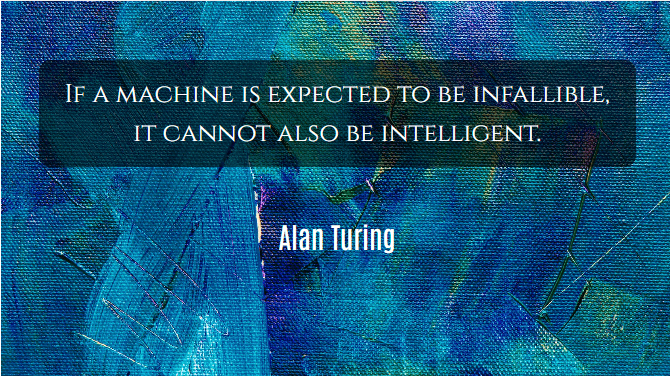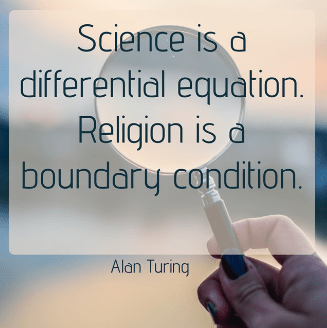Alan Turing
- Country : United Kingdom
- Profession :British mathematician, logician, and computer scientist.
- DOB: 1912-06-23
Alan Turing (1912-1954) was a British mathematician, logician, and computer scientist. He is renowned for his groundbreaking work during World War II at Bletchley Park, where he played a pivotal role in deciphering the German Enigma code. Turing’s concept of the “Turing machine” laid the foundation for modern computer science and artificial intelligence. Despite his remarkable contributions, he faced tragic persecution due to his homosexuality, leading to his tragic death. Turing’s legacy endures as a symbol of scientific brilliance and a symbol of the struggle for LGBTQ+ rights, with his profound impact continuing to shape technology and human understanding.
May not machines carry out something which ought to be described as thinking but which is very different from what a man does?
Author: Alan TuringI believe that at the end of the century the use of words and general educated opinion will have altered so much that one will be able to speak of machines thinking without expecting to be contradicted.
Author: Alan TuringSometimes it is the people who no one imagines anything of who do the things that no one can imagine.
Author: Alan TuringA man provided with paper, pencil, and rubber, and subject to strict discipline, is in effect a universal machine.
Author: Alan TuringProgramming is a skill best acquired by practice and example rather than from books.
Author: Alan TuringOne day ladies will take their computers for walks in the park and tell each other, “My little computer said such a funny thing this morning”.
Author: Alan TuringUnless in communicating with it one says exactly what one means, trouble is bound to result.
Author: Alan Turing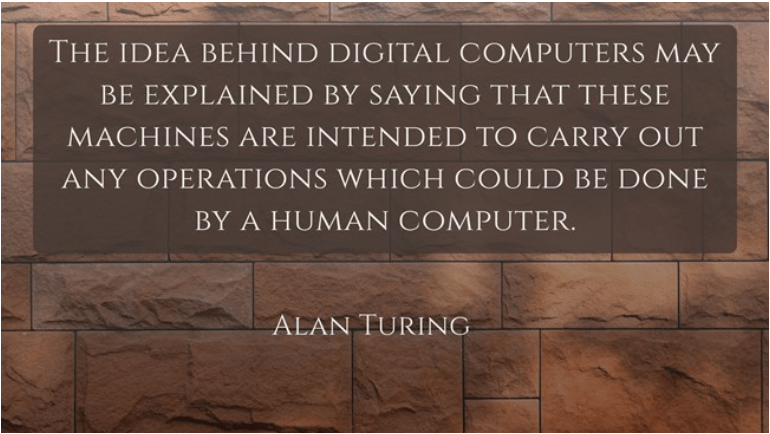
The idea behind digital computers may be explained by saying that these machines are intended to carry out any operations which could be done by a human computer.
Author: Alan TuringNo, I’m not interested in developing a powerful brain. All I’m after is just a mediocre brain, something like the President of the American Telephone and Telegraph Company.
Author: Alan TuringWe may hope that machines will eventually compete with men in all purely intellectual fields.
Author: Alan TuringInstruction tables will have to be made up by mathematicians with computing experience and perhaps a certain puzzle-solving ability. There need be no real danger of it ever becoming a drudge, for any processes that are quite mechanical may be turned over to the machine itself.
Author: Alan TuringThe works and customs of mankind do not seem to be very suitable material to which to apply scientific induction.
Author: Alan TuringInstead of trying to produce a programme to simulate the adult mind, why not rather try to produce one which simulates the child’s? If this were then subjected to an appropriate course of education one would obtain the adult brain.
Author: Alan Turing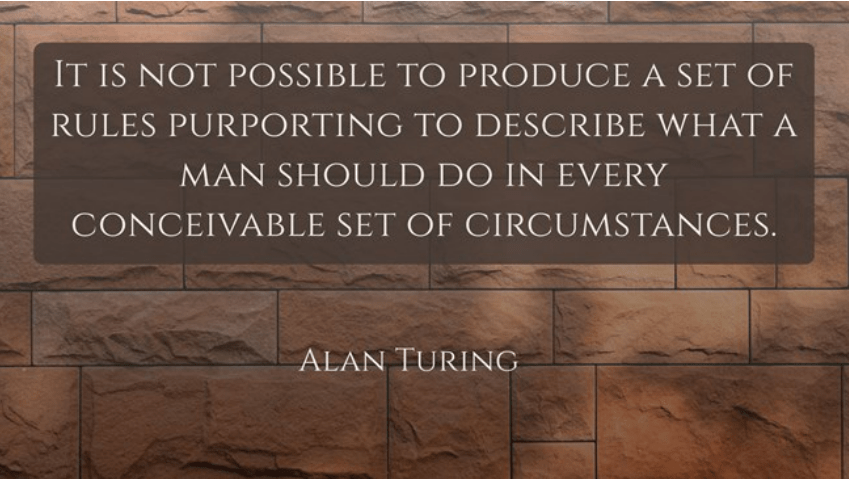
It is not possible to produce a set of rules purporting to describe what a man should do in every conceivable set of circumstances.
Author: Alan TuringThe popular view that scientists proceed inexorably from well-established fact to well-established fact, never being influenced by any unproved conjecture, is quite mistaken. Provided it is made clear which are proved facts and which are conjectures, no harm can result. Conjectures are of great importance since they suggest useful lines of research.
Author: Alan TuringA very large part of space-time must be investigated, if reliable results are to be obtained.
Author: Alan TuringI am not very impressed with theological arguments whatever they may be used to support. Such arguments have often been found unsatisfactory in the past. In the time of Galileo it was argued that the texts, ‘And the sun stood still… and hasted not to go down about a whole day’ (Joshua x. 13) and ‘He laid the foundations of the earth, that it should not move at any time’ (Psalm cv. 5) were an adequate refutation of the Copernican theory.
Author: Alan TuringIt seems probable that once the machine thinking method had started, it would not take long to outstrip our feeble powers… They would be able to converse with each other to sharpen their wits. At some stage therefore, we should have to expect the machines to take control.
Author: Alan TuringDo you know why people like violence? It is because it feels good. Humans find violence deeply satisfying. But remove the satisfaction, and the act becomes hollow
Author: Alan TuringThe isolated man does not develop any intellectual power. It is necessary for him to be immersed in an environment of other men, whose techniques he absorbs during the first twenty years of his life. He may then perhaps do a little research of his own and make a very few discoveries which are passed on to other men. From this point of view the search for new techniques must be regarded as carried out by the human community as a whole, rather than by individuals.
Author: Alan TuringFinding such a person makes everyone else appear so ordinary…and if anything happens to him, you’ve got nothing left but to return to the ordinary world, and a kind of isolation that never existed before.
Author: Alan TuringI want a permanent relationship, and I might feel inclined to reject anything which of its nature could not be permanent.
Author: Alan TuringThe original question, ‘Can machines think?’ I believe to be too meaningless to deserve discussion.
Author: Alan TuringIt is possible to invent a single machine which can be used to compute any computable sequence.
Author: Alan Turing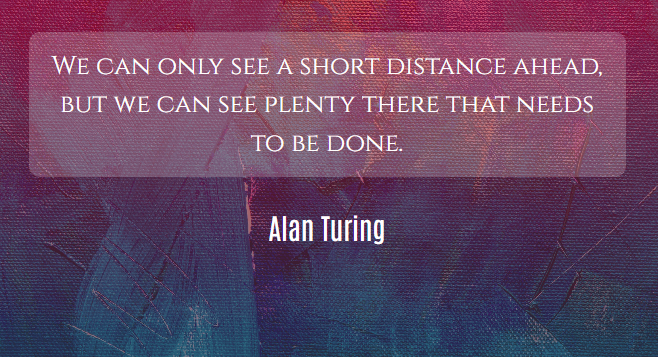
We can only see a short distance ahead, but we can see plenty there that needs to be done.
Author: Alan TuringI’m afraid that the following syllogism may be used by some in the future. Turing believes machines think. Turing lies with men. Therefore, machines do not think.
Author: Alan TuringWe are not interested in the fact that the brain has the consistency of cold porridge.
Author: Alan TuringMathematical reasoning may be regarded rather schematically as the exercise of a combination of two facilities, which we may call intuition and ingenuity.
Author: Alan Turing
